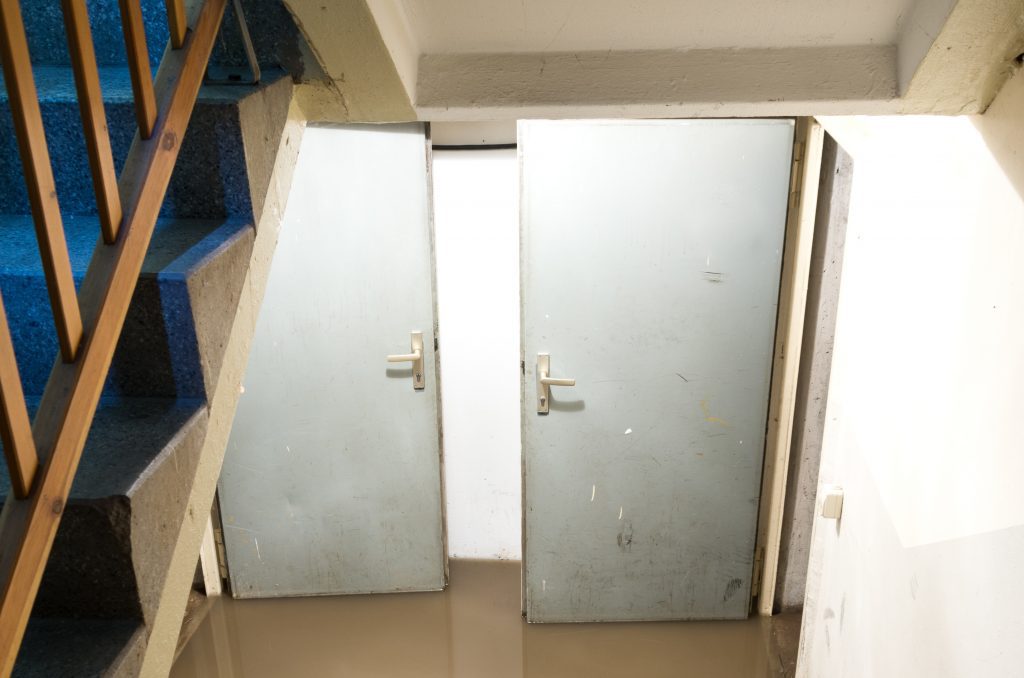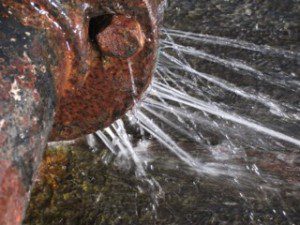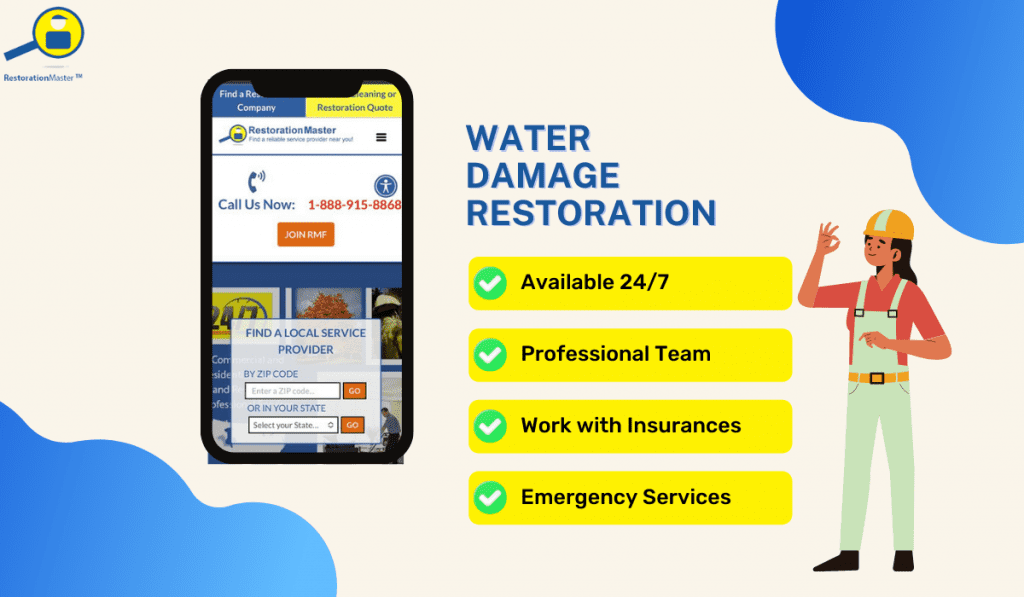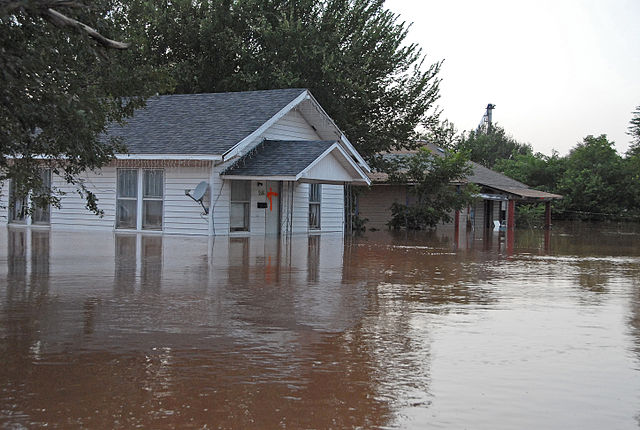What to Do After A Flood or Sewage Backup

Any situation concerning water damage is deemed an emergency, but this is especially the case when the situation involves a flood or a sewage backup.
When a home or building has excess water, any porousPorous describes a material that contains small openings or ... More building materials and furnishings will absorb the moisture. The water spreads through the material, increasing the amount of damage. As time passes, the affected materials will weaken structurally and are at greater risk of moldMold is a type of fungus that grows in damp or humid conditi... More growth. Because of this, it is imperative that the water is stopped promptly, and the damage is addressed immediately.
In the case of a flood, the larger volume of water causes harm much quicker. With a sewage backup, additional damage is done because the porousPorous describes a material that contains small openings or ... More materials will also absorb the sewage’s harmful materials. Furthermore, the sewageSewage is wastewater containing biological and chemical cont... More can also create an unsafe environment that causes health concerns for those who inhabit the space.
If you find that your home or other property has suffered flood damage or needs sewageSewage is wastewater containing biological and chemical cont... More cleaning, then you can use the following tips to help with the aftermath.
Address the Source
 If water damage has been caused by an internal source, such as a pipe burst, then you should shut off the main water line right away. This will prevent more water from floodingFlooding is the overflow or accumulation of water in areas t... More into your property which limits the amount of damage done and repairs that need to be made. Additionally, shut off the gas and power lines, too, so that they do not become damaged or cause harm.
If water damage has been caused by an internal source, such as a pipe burst, then you should shut off the main water line right away. This will prevent more water from floodingFlooding is the overflow or accumulation of water in areas t... More into your property which limits the amount of damage done and repairs that need to be made. Additionally, shut off the gas and power lines, too, so that they do not become damaged or cause harm.
If you cannot turn these utilities off yourself, then you should call your utility companies and ask them to do it for you.
Contact Your Insurance Company to File a Claim
Reach out to your insurance provider to inform them of the water damage. You want to file a claim immediately so a representative can conduct an evaluation. But make sure you consider the insurance policy that you have for your property. Not all homeowner’s insurance will cover flood damage restoration.
Prioritize Your Safety
If you can stay away from the sewageSewage is wastewater containing biological and chemical cont... More water and/or flooded areas, then you should. This is especially important when the water damage involves sewageSewage is wastewater containing biological and chemical cont... More due to the health issues it can cause.
If you must go into the standing water, make sure you have proper protective gear. Wear rubber gloves and boots, and make sure your limbs are not exposed. Consider wearing a mask and goggles, too, to ensure no water gets into your eyes, nose, or mouth.
Inspect the Building for Structural Damage
Because water can harm the structural integrity of porousPorous describes a material that contains small openings or ... More building materials, it is possible that your property is unstable following flood damage. Knowing this, it is important to examine the building’s structureStructure refers to the framework or components of a buildin... More. If you encounter something concerning, stay out.
Document the Flood Damage
Take photos and record videos to document the damage your property and contents have suffered. This will provide necessary evidence for your insurance provider for the claims process. It will also help you keep track of what items were harmed and how much damage was done.
Salvage Your Belongings
As you make your way through the building, salvage whatever unharmed content you can to prevent them from becoming damaged. The existing flood damage will already be costly, so you want to minimize your losses and the amount of money you will have to spend on restorationRestoration is the process of returning a property to its pr... More and repairs. Take unharmed items to an unaffected area where they can be stored away safely.
Furthermore, you will also want to transport portable affected items out of the water. The longer these items sit in the standing water, the more water they take in and the more damage they will sustain. Some examples of items you will want to move out from the area include rugs, furniture, and electronics.
Get Professional Water Damage Restoration Help
When your residential or commercial property has sustained flood damage, there are some instances where the harm is minimal enough for you to address it on your own. But instances concerning flood cleaning and sewageSewage is wastewater containing biological and chemical cont... More backups are best handled by professionals. This is because the job is often too big and/or dangerous for unqualified persons to take care of themselves.

With help from a professional water damage restoration service, technicians will handle the cleaning and restorationRestoration is the process of returning a property to its pr... More process for your damaged home or business. These professionals have the expertise and equipment to handle all cases of water damage in a safe and proper manner. Whether you need flood cleanup or sewageSewage is wastewater containing biological and chemical cont... More cleaning, professional water damage technicians can help.
To begin, technicians will extract the excess water and repairRepair is the act of fixing or restoring damaged property, m... More the source. From there, they use advanced dryingDrying is the process of removing moisture from materials, s... More and dehumidificationDehumidification is the process of reducing and controlling ... More equipment to dry out the affected areas. Once dry, the property is cleaned, and repairs are made. In the event moldMold is a type of fungus that grows in damp or humid conditi... More has grown as a result of the water damage, professionals can also provide mold remediationMold remediation is the process of identifying, removing, an... More.
With professional water damage restoration help, you can feel confident that your home or business will be clean and safe to return to after a flood or sewageSewage is wastewater containing biological and chemical cont... More backup.












